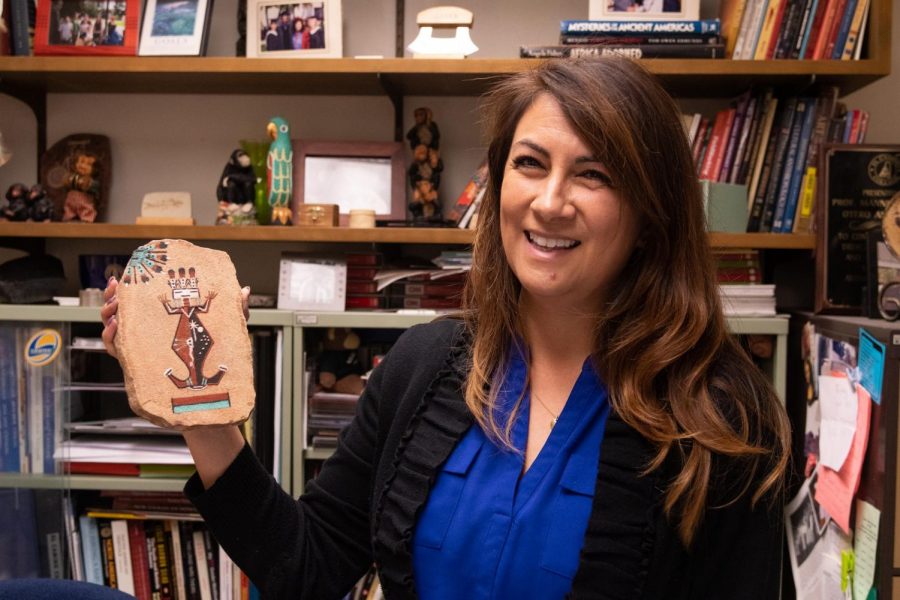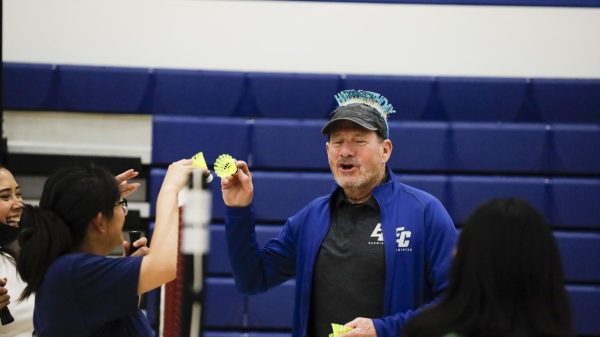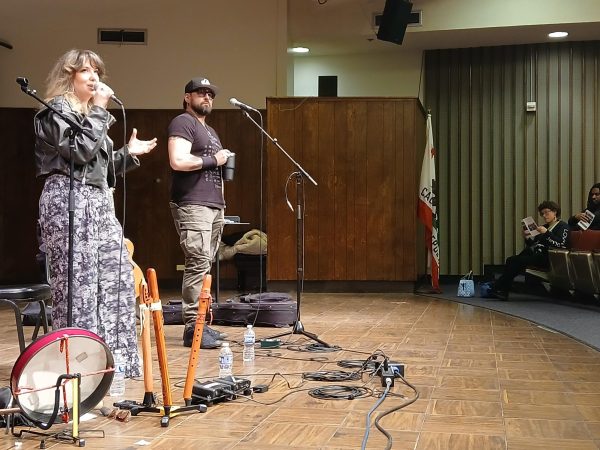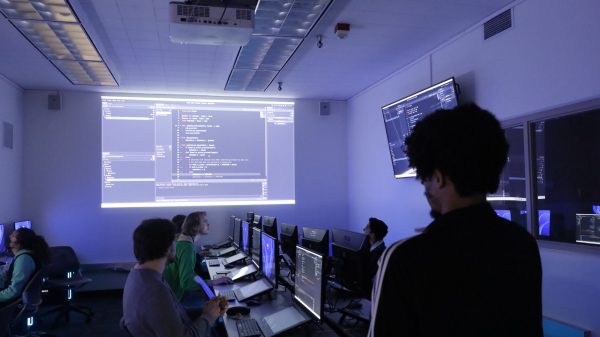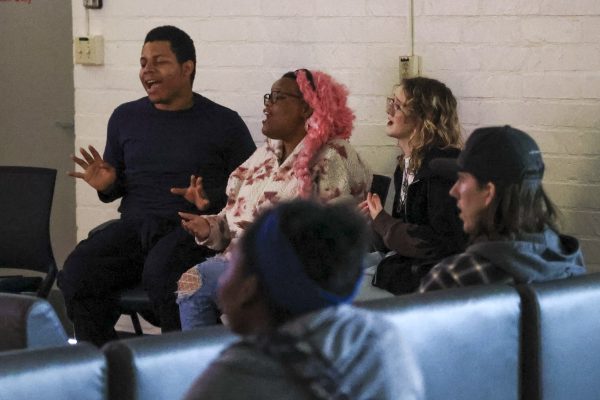Anthropology course explores significance of supernatural beliefs in small-scale societies
Angela Mannen, shows her souvenirs, a native American art piece, at El Camino College, May, 2, 2019. Photo credit: Elena Perez
When people think of witchcraft they may think broomsticks, pointy hats, black cat, a spell book, and a cauldron for mixing potions, but that’s all an illusion.
Witchcraft and magic are spiritual practices performed by individuals in several traditional cultures around the world. Each culture has their own set of beliefs and rituals dealing with witches and things of the supernatural.
“We have to leave behind our stereotypical thoughts of a Halloween witch, which actually stems from euro American beliefs about witchcraft which differs from native peoples perspective,” anthropology professor Angela Mannen said.
Anthropology of Magic, Religion, and Witchcraft (Anthropology 11) has been a part of the El Camino College anthropology department’s curriculum since it was approved in 2000. The course explores the cultural significance of sacred supernatural beliefs serve in various small-scale societies.
This class is definitely not Hogwarts and there are no magical wands or magic concoctions being conjured up in the classroom.
Mannen has been teaching anthropology at El Camino College for over 20 years now. She was inspired to teach anthropology through a faculty mentor at Cal State Fullerton when she was in graduate school. She was selected by the head of the department to teach an intro level class. By the end of the semester she decided anthropology was what she wanted to do as a career.
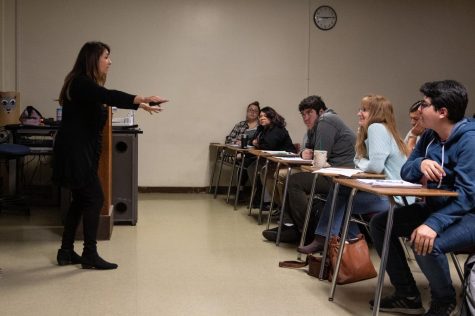
When she began teaching at El Camino College, the former Dean of the Behavioral and Social Sciences division Gloria Miranda, asked her to help build up the anthropology program and complete the research for the Anthropology 11 course.
“This class was developed as faculty interest and student interest, it’s a fun class,” Dean of Behavioral and Social Sciences Christina Gold said. “Angela actually helped develop the course.”
Professor Rodolfo Otero specializes in the anthropology of religion and also teaches the anthropology of magic, religion and witchcraft. He has been teaching anthropology with Mannen at El Camino for 14 years.
“Angela is excellent, she has the gift of public speaking, her enthusiasm as she provides her lecture keeps the students engaged,” Otero said.
Over the years Anthropology 11 has become Mannen’s favorite class to teach.
“This is my favorite class maybe because of what we can learn from other cultures in their beliefs and practices, that there’s more than one way to view the world, there’s other values that people can hold and I think it’s important to tap into that knowledge and value it,” Mannen said.
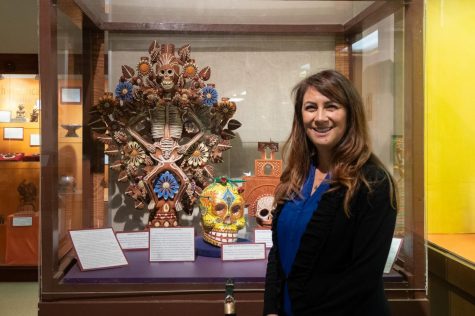
In anthropology, there’s no judgment of other beliefs being more true or correct than others. The basic approach is to view and understand people’s beliefs from a holistic perspective of the group that’s being studied, she said.
“I think that one of my favorite things is just to see how other people view the world and how religion can be the filter in which they view it,” Mannen said.
Magic in anthropology has a connection to the supernatural. Typically a person will practice a set ritual by use of spells or objects and symbols to address a pressing need. People want to assure that they have control of their lives and these rituals give the illusion of control, Mannen said.
“Magic is not going to be pull a rabbit out of a hat, it’s not going to be like any of these illusionists,” Mannen said.
Similar to religion, the discipline of anthropology is not trying to prove or disprove that magic or witches exist. It’s about understanding of how different cultures view these supernatural matters and how they function in their society, she said.
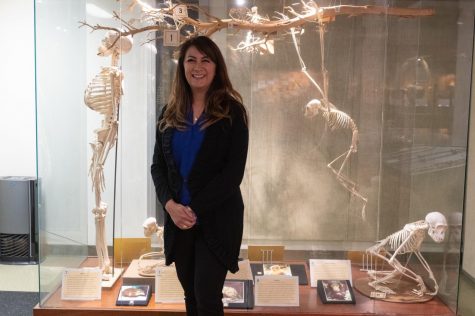
This course will highlight how distinct cultures believe a person acquires their witch power and whether the people deem it’s voluntary or not, and if the person was born a witch or trained to be one.
In anthropology, religion can be an umbrella term for any beliefs and practices related to the sacred supernatural. A more generic title for the course would simply be the anthropology of religion.
Students will be expected to do a semester research project in Mannen’s class. There are three options for the project; field work, a poster project, or to create a board game.
The fieldwork revolves around researching and speaking to someone from a different religion from the student. The poster project deals with researching different cultures ideas of the afterlife and funeral rituals. Lastly, the board game is to incorporate everything they’ve researched into a family style game.
Anthropology 11 is a popular course in the anthropology department. Both professors said that they have high enrollment this semester.
“For both professor Otero and I, it’s our first class that fills up when we’re watching enrollment. We usually have a wait list,” Mannen said.
This course actually meets IGETC transfer requirements as it satisfies the social and behavioral sciences section. It has recently crossed over to satisfying a humanities option for IGETC as well.
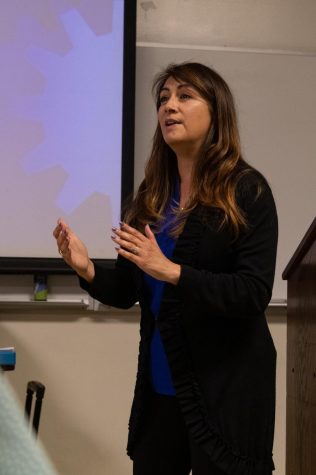
“Magic and witchcraft attract the students, most of them are excited and interested in the topic,” Otero said.
Students that earn a bachelors or masters degree in anthropology can get careers in public health, forensics, laboratories and museums, and a wide range of other areas.
Update: 1:30 p.m. Thursday, May 9, grammatical errors were adjusted for clarity


